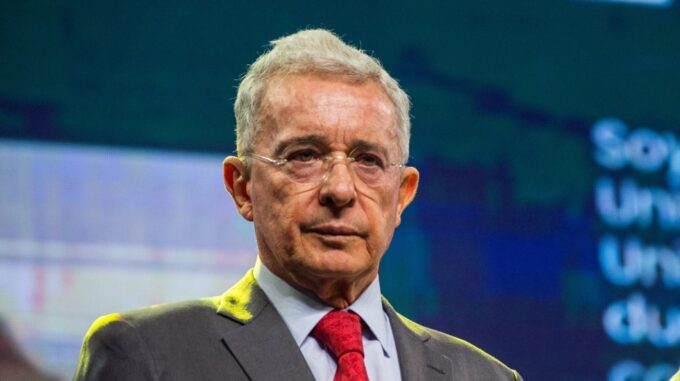Former Colombian President Álvaro Uribe Sentenced to 12 Years of House Arrest for Corruption Crimes

In recent developments within Colombia's political and judicial landscape, a landmark case has emerged that marks a significant moment in the country's pursuit of legal accountability at the highest levels of power.
Former Colombian president Álvaro Uribe, a figure synonymous with 2000s political dominance, has been officially sentenced to serve 12 years under house arrest for criminal misconduct.
This verdict has sent shockwaves through the nation's political circles and raised questions about the rule of law and judicial independence in Colombia.
According to reports from agencies such as Associated Press and NBC News, the court found Uribe guilty of engaging in bribery and coercing witnesses, actions that undermine democratic integrity.
Additionally, he was subjected to a financial penalty exceeding $770,000 USD and barred from holding any public office for eight years.
The sentencing was delivered during a courtroom session led by Judge Sandra Liliana Eraida, with both the defendant and his legal team participating remotely.
Uribe's lawyers announced their intention to appeal the decision.
The court rejected a plea to keep Uribe free during the appeals process, citing concerns that he could flee the country to evade justice.
As ordered, Uribe must appear before the police in Riogrande, near Medellín, where he resides, and immediately begin serving his house arrest.
Investigations revealed that Uribe was complicit in a conspiracy with his attorney to influence the testimonies of three former members of paramilitary groups, who were imprisoned at the time, to alter their sworn statements provided to Senator Iván Cepeda, who initiated the probe into alleged links between Uribe and armed factions.
This case follows a tense legal history, including a 2012 lawsuit initiated by Uribe against Cepeda for defamation, which was dismissed, and the subsequent criminal proceedings opened against Uribe himself in 2018.
During his presidency between 2002 and 2010, Uribe garnered broad support due to his aggressive anti-insurgency policies and efforts to attract foreign investment.
His supporters see him as a national hero, while critics accuse him of human rights violations and enabling paramilitary influence.
The United States, which had been a strong backer of Uribe's anti-rebel campaigns, issued a statement criticizing the court ruling as politically motivated and an unfair use of Colombia's judicial system.

